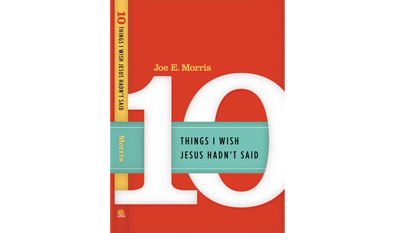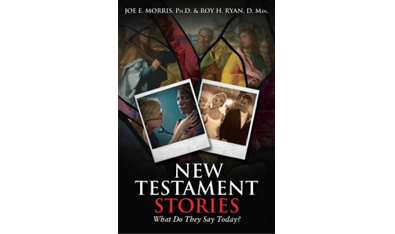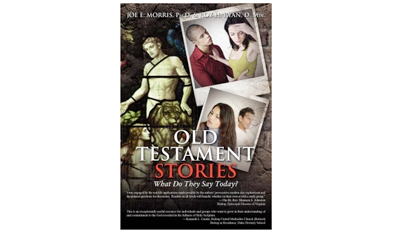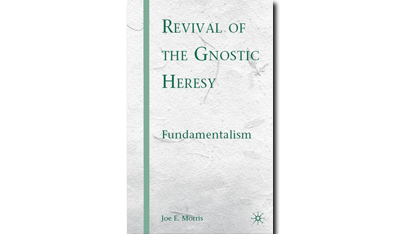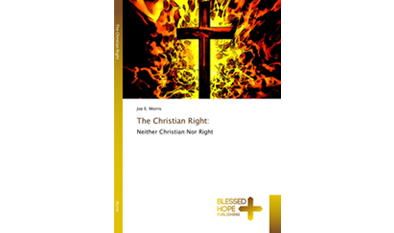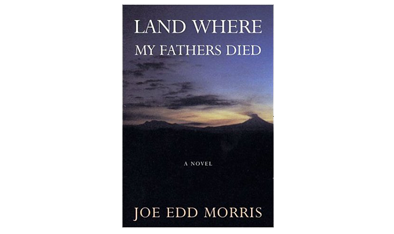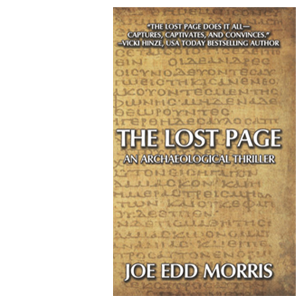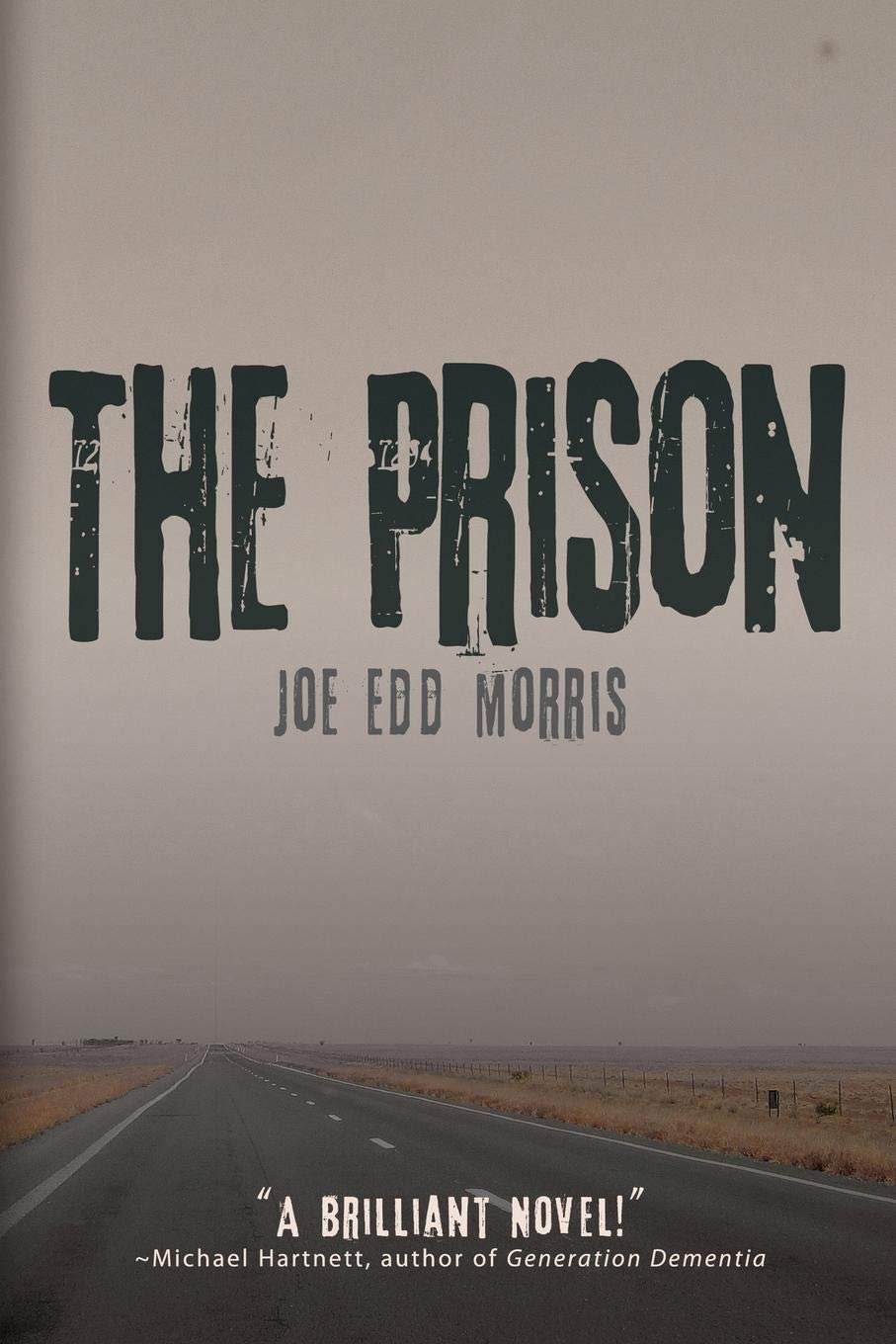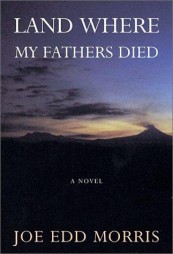The Christian Faith and Politics: A Holy Alliance
Will you join me in the Pledge of Allegiance to our flag and our country.
I pledge allegiance to the flag of the United States of
America, and to the Republic for which it stands, one
nation, under God, indivisible, with liberty and justice
for all.
Scripture: “Pilate had a notice prepared and fastened to the cross. It read: Jesus of Nazareth, THE KING OF THE JEWS…and the sign was written in Hebrew, in Greek, and in Latin. (John 19:19-20)
The sign was written in Hebrew. Hebrew is the language of Religion. Jesus is King of religion. That is a message for another day.
The sign was written in Greek. Greek is the language of culture, the arts and philosophy. That is a message for another day.
The sign was written in Latin. Latin is the language of government, law and politics. That is a message for today.
Some say politics and religion don’t mix. Whatever you do, keep religion out of politics. Don’t bring Jesus into politics. In other words, don’t take Jesus too seriously. The problem is, we don’t take him seriously enough.
A few weeks ago, we celebrated Palm Sunday…Jesus’ Triumphal Entry.
Jesus took his faith to town…not just to town, but to the polis, the city, the seat of the government of his time. He marched his faith into the hallowed halls of the capital of his religion….and it created quite a stir.
There are issues today on which the Church dare not be silent. It is time for those of us who are Christian American citizens to take stock of the issues. Where does our faith stack up with them?
Let’s get started.
Abortion
Regardless of the translation used, the word “abortion” does not appear in the Bible. Some scriptures, however, do lend support that a fetus is a living human being. Job: “Did not he who made me in the womb, make them? Did not the same one form us both within our mothers?” (31:15). The psalmist writes, “Yet you brought me out of the womb…from my mother’s womb you have been my God” (Psalms 22:9-10) and, “For you created my inmost being, you knit me together in my mother’s womb…your eyes saw my unformed body…” (Psalm 139:13, 16). In New Testament, there is the passage where Mary visits Elizabeth and “the baby lept in her womb.” (Luke 1:39-44)
Considerable material in the Old Testament underscores the worth of life. The value and sanctity of human life is affirmed in the creation story in Genesis 1:26-28. The theme surfaces again in Psalm 8:4-5— “What is man that you are mindful of him, the son of man that you care for him, you made him a little lower than the heavenly beings and crowned him with glory and honor.” God loves and cares for human life, including the pre-born, transferring His image to them (Psalm 139). Human life is precious to God and its wanton destruction forbidden by God (Genesis 9:5-6; Revelation 21:8)
Based upon the words handed down to us in the New Testament, Jesus of Nazareth never discussed abortion. But a central thrust of his message of love is the sanctity of human life. “I came that should have life and have it more abundantly.”
An abundance of New Testament material advocates the sanctity of human life. In Matthew 6:26 (“Is not life more important than food”) and 10:29-31 (“even the very hairs of your head are numbered.”) Paul as well stresses that God’s work invests human life with value (1 Corinthians 3:16-17) (“Don’t you yourself know that you are God’s temple and that God’s spirit lives in you”; (John 3:16). Over and over, throughout his ministry, Jesus of Nazareth confirmed the sacredness of human life. Based upon a broad interpretation of his teachings, Jesus is pro-life. (Notice, I am using present tense. Remember, He lives.)
In some quarters, abortion is legitimate in case of rape, incest, or threat to the mother’s life. I wonder how Jesus feels about that hedge. After all, he stripped the hedge from the law of his day. As noted Christian author G. K. Chesterton once said: Christianity even watered down is hot enough to boil all of society to rags. Even when we water it down, we still feel the heat.
The discussion on abortion leads us to another life issue. The death penalty.
This is where I run into a problem. When terrorists murder anybody, U. S. citizens or otherwise, there is a part of me that immediately reacts. They should pay. They should be strung up, decapitated and their bodies burned. But there is another part of me, after I simmer down, that comes to the surface. It is a side of me nurtured as a child in Sunday School classrooms with pictures of Jesus on the wall, in MYF as a teenager, at Camp Lake Stephens and on Vesper Hill and the breakfast table in my home during morning devotions and my mother’s strong voice regarding a similar world situation. I said, “We should just go over there and shoot them.” She leaned across that breakfast table, looked me straight in the eye, grabbed my arm and shook it. “But Edd, Joe Edd, if we do that, we are behaving like them. We are above that. We are Christians.”
Her comments brings to mind that memorable scene in The African Queen (1951) starring Kathryn Hepburn and Humphrey Bogart. Hepburn played the role of Sister Rose, a Christian missionary in the Congo and Bogart was Charlie Allnut, the pilot of a tramp steamer that brought mail supplies to the missionaries. Charlie agreed to take Sister Rose out of the dangerous Congo. During their travel together on his boat, she upbraids him about his drinking. He remarks to her, “But, sister, I’m just human.” Her quick retort: “But Mr. Allnut, being human is what we are placed upon this earth rise above.”
As Christians, we believe in the value of life, not its destruction. There are other ways to punish, to discipline that can be far more productive than wiping out a life. God’s power to regenerate cannot be underestimated. I’ve worked in two maximum security prisons. I’ve witnessed the rehabilitation of murderers who, behind bars, repented and led productive Christian lives. And, by the way, if Paul had been stoned to death for his slaughter of Christians, we might not be here.
Most are familiar with the negatives about capital punishment. Research has shown that the death penalty does not deter crime. It is also very expensive. Appeals cost tax payers hundreds of thousands of dollars. It is not a perfect prescription. Innocent people are killed. We read almost daily how DNA or other evidence has proven people innocent who had been condemned, some to die. The U. S. is one of the few civilized countries in the world who still use capital punishment.
The sixth commandment says Thou Shalt Not Kill. When we do take the life of another, whether by abortion or capital punishment, we are also breaking the first commandment. We are assuming God’s role.
Constantly, at every turn in the road, Jesus shows mercy, he forgives, he heals, he raises from the dead, he gives new life. He is not portrayed, for any reason, or in any way, as taking life, only giving life.
When it gets down to the lick log, down to where the rubber hits the road, I cannot believe in a Savior who would drop pellets in a gas chamber, give a lethal injection, flip an electric switch or fire a rifle in a firing squad.
Immigration is something else I struggle with. I don’t like change. If I could I would swing the clock back to My Little Margie, Father Knows Best and Ozzie and Harriett. Back to a golden time where the people where I grew up were like me. I have a problem with new people moving to my town, onto my turf, new people who look, talk and dress differently…and believe differently. I’ve got a problem with that. John Adams had the same problem when he didn’t want to leave Quincy and travel to New York. With irritation, he wrote Abigail, “The place is full of foreigners. I hear every language but English.”
Who are immigrants? They are people seeking a better life. If we lived in deplorable conditions, we’d be doing the same, seeking a better world for our spouses and children. Without immigrants, there would be no United States of America. Unless any of you in this room are native American, you came from somewhere else.
What do the scriptures say about immigration? In her book, Immigration and the Bible, Joan Maruskin, director of the Church World Service Immigration Service, cites 300 scriptures in both Old and New Testaments that support care for aliens and immigrants. The Bible is an immigration handbook. Adam and Eve were immigrants, and not by choice. Cain was an immigrant, and not by choice. Noah was the son of immigrants. Abraham, Isaac, Jacob and Joseph and their entire families were immigrants. The early Hebrews and Twelve Tribes of Israel were immigrants. Namoi and Ruth, the great-grandmother of David, were migrants. In fact, the Book of Ruth is about an interracial marriage. We get over into the New Testament, run our finger down the gospel page and find that….yes…Jesus, the Messiah, the Christ, the reason for the reason we are here, was a migrant and refugee. What does that do to your thoughts about immigrants and immigration?
Hundreds of passages relate to migrants and the theme of immigration. Some are strong words. “Cursed be the person who oppresses the immigrant.” (Exodus 23:9) There are more than 300 scriptural admonitions for mercy toward aliens and migrants.
For early immigrants coming to this county, the Statue of Liberty was the symbol of their new life. Inside the pedestal of the statue a plaque bears a sonnet by Emma Lazarus: “The New Colossus” and within that sonnet these words: the statue cries with silent lips…Give me your tired, your poor, your huddled masses yearning to breathe free, the wretched refuse of your teeming shore. Send these, the homeless, tempest-tossed to me, I lift my lamp beside the golden door.”
These words are not from the Bible, but they are similar in spirit to some attributed to Jesus of Nazareth: “I was a stranger and you took me in” (Matthew 25:35). “Come to me all who are weary and burdened, and I will give you rest. Take my yoke upon you and learn from me, for I am gentle and humble in heart, and you will find rest for your souls” (Matthew 11:28). I get chill bumps reading these words. Do they do anything to you?
In summary, according to the four gospels, Jesus of Nazareth went out of his way to show kindness and compassion to those who were hated by the Jews, members of his own race. New Testament ethics is clear about others of different ethnic origin or nationality. They are included rather than excluded from God’s love and mercy. Even the righteous and pure are not excluded, only ranked behind the penitent sinners in the line of salvation.
The Catholics have a strong immigration mission. They go where the immigrants are and provide food, clothing, shelter and medical services. The United Methodist Church has taken a strong stand on immigration reform and have numerous mission and outreach programs, one in particular, The Northwest Conference Immigration Task Force in Tacoma, Washington. These are churches and people building bridges, not walls, to people in need.
Another prominent issue today is the environment.
What does the Bible have to say? The Bible has much to say about the earth, the environment and its conservation. Over two-thousand verses, constituting eight percent of the Bible, relates to environmental issues and principles. The extent of biblical references to environmental concerns has prompted the publication of The Green Bible. This “green letter” edition includes verses and passages that speak to environmental issues, contributions by noted theologians, a Green Bible index and study guide, all printed on recycled paper using soy-based ink with a cotton/linen cover.
Sample verses include Genesis 1:26: “Then God said, ‘Let us make man in our image, in our likeness, and let them rule over the fish of the sea and the birds of the air, over the livestock, over all the earth, and over all the creatures that move along the ground.’” Leviticus 25:23-24– “The land must not be sold permanently, because the land is mine and you are but aliens and my tenants. (we are all immigrants) Throughout the country that you hold as a possession, you must provide for the redemption of the land.” Isaiah 11:9– “They will neither harm nor destroy on all my holy mountain, for the earth will be full of the knowledge of the Lord as the waters cover the sea.”
Despite what most of the scientific community say today, what if that there was no climate change, no vanishing ozone layer that protects us from the sun, no melting ice caps…we still bear the responsibility to take care of the earth…to be good stewards of its air, its water, its animals and specie. We should adopt an ecological attitude that expresses wholeness and interconnectedness in the earthly community of all creatures.
A word or two about violence. Jesus was a pacifist. He was against violence. He was against any thing or any person who advocated violence. I know of some very few New Testament scriptures which can be twisted and wrung from context that might suggest Jesus condoned violence and weapons of destruction. I’ll cite one, the cleansing of the Temple. Jesus’ behavior, which was intentional and pre-mediated, not a sudden temper outburst, are said by some to justify violent actions. But the whip he used to chase the animals was hardly a hand grenade or an AK40.
The famous quote from Napoleon is appropriate. “Alexander the Great, Charlemagne and I have created empires by sheer brute force. Yet Jesus of Nazareth has founded a kingdom based on love and today tens of thousands kneel in homage at his feet.”
Perhaps we’ll get a clearer picture with our next issue: Torture. The standard-bearer of our faith was beaten, flogged, a crown of thorns placed on his head, steel spikes driven through his flesh, a spear thrust into his side….AND WHAT DID HE SAY: You’re going to pay for this? You just wait? I’m going to sic my angels on you? No! No vitriolic word of hate or anger. Instead…FATHER FORGIVE THEM FOR THEY KNOW NOT WHAT THEY DO. Must more be said? Can you imagine Jesus, the exemplar of our faith, the Prince of Peace, the Christ who said “Father forgive them,” torturing anyone?
Christianity, even when watered down is hot enough to boil all society to rags.
Then there is this final issue we need to address.
LGTB
For those who don’t know what that acronym means, LGTB, you’ve been in Katmandu or Timbuktu. I’m not going to spell it out. We have young people here. It is about gender differences. I’m not going to get into the legal issues of marriage and public services. I’ll leave that for the courts and democratic process. There is a Higher Court, a Higher throne…and Someone on that throne knows who loves whom. He’s in control and I’m OK with that. I don’t have to, nor need to. assume that role.
But on this earth how are we as Christians to treat others of different gender? As Christians, how are we supposed to treat others who are different from us…different race, different religion, different socio-economic status, different IQ’s?
In many ways, Jesus helps us with that issue but probably not more pointedly than his Parable of the Good Samaritan. The parable is told in response to a lawyer’s question, Who is my neighbor? All of you know the story, how a Samaritan helped a man, presumably a Jew, who had been assaulted and robbed by bandits.
Who was a Samaritan? To a Jew, a Samaritan was the most despised, decrepit, despicable, disgusting specimen of human life. In short, Jews hated Samaritans. Besides Samaritans, the other outcasts of Jesus’ day were lepers.
For an an American Christian citizen today, who might be a Samaritan?
Perhaps a gay muslim with AIDS? An illegal immigrant with Zika? A mid-East refugee?
Thinking upon this issue of hatred and dislike of others prompted the recall of Ann Lamont’s famous quote from Byrd-By-Byrd. “You can safely assume you’ve created God in your own image when it turns out that God hates the same people you do.”
Who is my neighbor?
Zacchaeus was a despised, corrupt traitor to his people. He was hated. Zacchaeus heard Jesus was coming to town. Being a short man he climbed a tree. Zacchaeus did not have a sign hanging from his neck saying “I AM A CHANGED MAN; I HAVE REPENTED. Yet Jesus, unconditionally, called out to him, “Zacchaeus, come down from that tree, I’m going to hang out with you today.”
Who is my neighbor?
Regardless of one’s sex, race, religious affiliation or social status, Jesus of Nazareth reached out and embraced them. Often, he did not condone the behaviors of some. But He always stood shoulder to shoulder with the outcaste, the discriminated and excluded. His teachings and ministry were to all humankind.
How are we to treat others who are different from us? Jesus makes it clear. “Love others as I have loved you.” “Do unto others as you would have them do unto you.” “In that you have fed the hungry, given drink to the thirsty, sheltered those who are lonely, visited those who are in prison, you have done it unto me.” Who is my neighbor?
In the final analysis, I believe with St. Paul that in Christ there is neither Jew nor Gentile, neither free nor slave, neither male nor female. In Christ, there is no east or west, in Him no south or north. But one great fellowship throughout the whole wide world.
It is incredulous to me that our Savior would slam the door on someone, would exclude anyone because of their race, nationality, religion or gender from his kingdom of unconditional love.
Dare we take our faith to town…and cause a stir? Dare we take it into the voting booth?
We began with the Pledge of Allegiance…”to one nation, under God…with liberty and justice for—just a select qualified few? For the faithful elite who pass a litmus test? For the bonafide, certified. For those who qualify by race, religion, and gender? No!! For All. Liberty and Justice for ALL.”
In the Pledge to Allegiance, the phrase, “under God,” suggests to most of us that we are under God’s grace. But we dare not forget we are also under his judgment.
In the name of the Father, Son and Holy Spirit….and in the name of the King of Kings. Amen.

